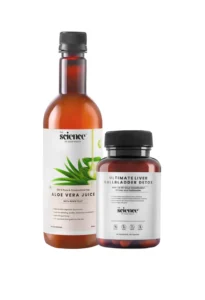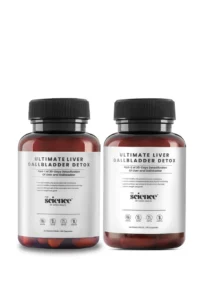Fatty liver disease has become one of the most common lifestyle-related health issues in the world today. Millions of people are struggling with it, and one of the most frequently asked dietary questions is is milk good for fatty liver. Since diet plays such a vital role in both the prevention and treatment of liver conditions, it is natural to wonder if drinking milk can help or harm.
The clear and simple answer is that milk can be good for fatty liver when consumed correctly, particularly in its low-fat form. However, the type of milk, the amount consumed, and the individual’s health condition all play a role. While some studies show positive effects of milk on liver enzymes and insulin resistance, others warn against excess saturated fats found in whole milk.
This article takes a detailed look at the role of milk in liver health. By the end, you will have a clear understanding of whether is milk good for fatty liver, how much milk to consume, and what alternatives to consider.
Understanding Fatty Liver Disease
Before answering the question of is milk good for fatty liver, it is important to understand the condition itself. Fatty liver occurs when too much fat builds up inside the liver cells, making it harder for the organ to function.
There are two major types of fatty liver disease:
- Non-Alcoholic Fatty Liver Disease (NAFLD): This is the most common form and is linked to poor diet, obesity, diabetes, and lack of physical activity.
- Alcoholic Fatty Liver Disease (AFLD): This form develops due to excessive alcohol intake but shows similar complications as NAFLD.
In both types, the liver cells store fat that should not be there, leading to inflammation, insulin resistance, and eventually liver damage if left untreated. Since the liver is responsible for detoxification and metabolism, keeping it healthy is crucial. Diet becomes one of the most powerful tools in this process, which is why so many people ask is milk good for fatty liver and look for science-backed answers.
The Role of Dairy in Liver Health
Dairy products, especially milk, have been part of the human diet for centuries. Milk contains several important nutrients that are believed to influence liver health positively. These include:
- Protein, which helps in repairing damaged liver cells and supports enzyme production
- Calcium, which plays a role in fat metabolism and may help reduce fat accumulation in the liver
- Vitamin D, which supports the immune system and reduces inflammation
- Phosphorus, which helps in energy regulation and metabolism
Despite these benefits, there are widespread myths that all dairy worsens liver conditions. Some believe milk clogs the liver with fat, while others avoid it due to fear of weight gain. In reality, the answer to is milk good for fatty liver depends on the type of milk consumed and the individual’s tolerance. Low-fat and skimmed milk have shown more benefits, while full-fat milk can be problematic if consumed in excess.
Is Milk Good for Fatty Liver?
This is the central question. So, is milk good for fatty liver? Research shows a mixed but generally positive answer when milk is consumed in moderation and in the right form.
- Low-fat or skimmed milk can support insulin sensitivity and reduce liver fat.
- Full-fat milk, while rich in nutrients, contains saturated fats that can contribute to further fat accumulation in the liver if taken in large amounts.
- Plant-based options like almond milk, soy milk, and oat milk can serve as healthy substitutes for those who are lactose intolerant or wish to avoid animal fats.
Therefore, when someone asks is milk good for fatty liver, the accurate response is yes, but with conditions. Milk can support healing when consumed in controlled amounts as part of a balanced diet.
Benefits of Milk for Fatty Liver Patients
Drinking milk may offer several benefits for individuals with fatty liver disease. These benefits answer in detail the question is milk good for fatty liver.
- Improves Insulin Resistance
Insulin resistance is one of the main causes of fat buildup in the liver. Milk proteins, especially whey, have been shown to improve insulin sensitivity, which can directly benefit liver function. - Reduces Inflammation
Chronic inflammation damages the liver over time. Some studies indicate that compounds in milk may reduce inflammatory markers, protecting the liver from further harm. - Supports Liver Enzyme Function
Patients with fatty liver often have elevated liver enzymes. Research suggests that moderate milk consumption can help regulate these enzymes and reduce stress on the liver. - Provides Nutritional Balance
Fatty liver patients need a diet that supports overall health without causing further fat buildup. Low-fat milk provides protein, calcium, and vitamins without excessive calories.
Thus, the benefits make it clear that the answer to is milk good for fatty liver is positive when milk is chosen wisely.
Risks and When to Avoid Milk
While milk can help many people, it is not suitable for everyone. To fully answer is milk good for fatty liver, we must also consider the risks.
- Lactose intolerance can make milk difficult to digest, causing bloating and discomfort.
- Excess consumption of whole milk can lead to high intake of saturated fat, worsening fatty liver symptoms.
- Drinking milk in very large quantities can add unnecessary calories, slowing down the recovery process.
This means that while the answer to is milk good for fatty liver is often yes, there are circumstances where milk should be avoided or replaced with alternatives.
Expert Recommendations
Doctors and nutritionists provide clear advice when patients ask is milk good for fatty liver. Most experts recommend:
- Choosing low-fat or skimmed milk instead of whole milk
- Limiting intake to one or two cups per day
- Opting for lactose-free or plant-based milk alternatives if regular milk causes digestive discomfort
- Pairing milk with a diet rich in vegetables, fruits, nuts, and lean protein for overall balance
The professional consensus is that milk is good for fatty liver patients if consumed in moderation and in the right form.
Best Foods and Lifestyle Tips for Fatty Liver
Milk is only one part of a liver-friendly diet. Along with understanding is milk good for fatty liver, it is important to know which other foods and lifestyle practices can support healing.
Best Foods for Fatty Liver
- Coffee, known to lower harmful liver enzymes
- Nuts, which provide healthy fats and antioxidants
- Leafy green vegetables, rich in fiber and detoxifying compounds
- Fatty fish, high in omega-3 fatty acids that reduce liver fat
- Green tea, which helps reduce oxidative stress
Lifestyle Tips
- Engage in physical activity for at least 150 minutes per week
- Maintain a healthy weight through diet and exercise
- Get enough sleep, ideally seven to eight hours per night
- Reduce stress through relaxation techniques like meditation or yoga
Conclusion
So finally, is milk good for fatty liver? The answer is yes when chosen carefully and consumed in moderation. Low-fat or skimmed milk provides essential nutrients, supports insulin function, and may reduce inflammation, making it a supportive addition to a fatty liver diet. However, overconsumption of full-fat milk or ignoring individual tolerance can be harmful.
The most important thing to remember is that no single food can cure fatty liver. Instead, recovery comes from a combination of good dietary choices, regular exercise, and lifestyle management. Milk can play a role in this journey, but it must be balanced with other healthy habits.
Explore Smriti Kochar Ultra-Wellness Program
If you are struggling with fatty liver or related metabolic conditions, you do not need to go through it alone. Through the Smriti Kochar Ultra-Wellness Program, you can heal naturally, reverse damage, and reclaim your health without depending on medicines.
Start Your Healing Journey Now: Smriti Kochar Ultra-Wellness Program
Read Our Latest Blogs
Is An Enlarged Liver Dangerous | How To Clean Liver Naturally | Is Grade 2 Fatty Liver Dangerous | How To Detox Liver Naturally At Home | Is Eggs Good For Fatty Liver | What Is Grade 1 Fatty Liver | What Is Sgpt In Liver | Is Curd Good For Fatty Liver | Is Sugarcane Juice Good For Liver | Is Beer Good For Liver | Is Coconut Water Good For Liver
Frequently Asked Questions
Yes, one to two cups of low-fat milk daily can be safe and beneficial for most fatty liver patients, as long as it is part of a balanced diet.
Low-fat or skimmed milk is the best choice for fatty liver patients. These options provide nutrients without excess saturated fat.
No single food, including milk, can reverse fatty liver. However, milk can support the healing process when included in a complete liver-friendly lifestyle.
Full-fat milk may be harmful if consumed in excess because of its saturated fat content. For fatty liver patients, moderation is key.
Yes, almond milk can be a healthy alternative. It is naturally low in calories and fat, making it safe for fatty liver patients.
They should avoid regular milk but can choose lactose-free milk or plant-based options such as soy or oat milk.
Experts suggest one to two cups of milk daily is generally safe. The amount may vary depending on individual health conditions.
Yes, low-fat milk can be given to children with fatty liver under medical supervision. It should always be combined with healthy eating and lifestyle changes.





